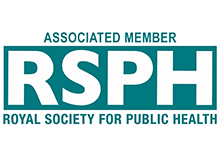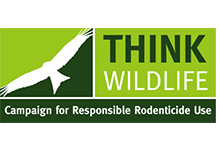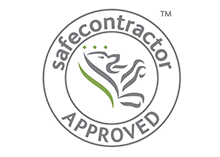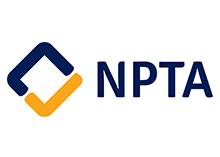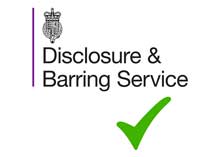Second Generation Anticoagulant Rodenticides (SGARs) are a form of pesticide that are particularly virulent and effective. In some ways, they are too effective presenting a significant issue to wildlife who may either come across the poison in its raw form or eat the remains of a poisoned rodent.
Effective rodent control is essential in both the urban and rural setting but, not at all costs. With very few effective alternatives to SGARs, they became the product that every professional pest controller relied upon, along with farmers, game keepers and so on.
But, the issue of non-species becoming victims themselves is a situation that can no longer continue. As a result, the Campaign for Responsible Rodenticide Use (CRRU) is leading the way in who, when and why these rodenticides are used in the future.
It is not an easy journey, however… there are many people involved in such a process. Everyone with a vested interested – agricultural, game keeper, professional technicians and suppliers. This aspect of the campaign has been labelled as the Stewardship Campaign. As part of this process, a code of practice is being created with the input of several large wildlife associations and organisations.
What this campaign means in practice?
In practice, it is about balance. The needs of wildlife are great, as are the needs of those who work and rely on arable land, as well as the countryside.
The Stewardship Regime will oversee how and why SGARs are used, monitoring the impact on wildlife. Just as important however, is ensuring that farmers and other people who rely on the land are able to carry on with their livelihood, without it being compromised by ineffective rodent control.
By 1 June 2016, no one – including professional pest control technicians – should be able to buy SGAR products without presenting the correct certification. There are various certificates that suffice, with the majority of pest controllers being in possession of at least one of the qualifications.
The four Stewardship groups were due to meet at the beginning of the year to finalise proposals and certification schemes, but this meeting was delayed with the involvement of various Government departments.
There are many difficulties; for example, licencing products is not an option but clearly, the labelling of products and how they are sold – and indeed, to whom – is also changing. But how this can be implemented legally is proving a larger task than first thought.
The main aim of the proposals is for effective rodent control in the interests of society – no one wants to be overrun with rats or mice – but without contaminating the countryside, placing wildlife at risk.
But the proposals are fragmented, with many key issues yet to be ironed out. The policing of the ‘regulations’ will be done by the industries involved, thus there needs to be an undertaking through all industries, from farmers to gamekeepers, pest controllers and so on, that they will adhere to the rules and guidelines on safe use of SGARs.
Suppliers also need to sign up to the proposals too, as they have an important link in the buying chain. But, the four stewardship sectors – one of which is professional pest controllers – have been asked to come up with a plan as to how they will play their part in the process.
The professional pest controllers both private and local authority members presented a detailed plan to the Health & Safety Executive (HSE) about the part they would play in implementing the safe use of SGARs.
One aspect of the plan was for certified pest controllers, holding a level 2 award in ‘Pest Control and Management’ as a minimum for both the safe use and purchase of SGAR products. However, this plan stills needs work as there are professional pest controllers who are not members of organisations or trade bodies and there needs to be methods of reaching these technicians. Likewise, the ability to monitor the success and use of SGARs is also an issue that needs looking at.
What do professional pest controllers need to do now?
Being prepared in vital, as the changes are coming. As a result, it pays for all practicing professional pest control technicians to look at their current level of certification. Those who earned their RSPH/BPCA award or certificate in Pest Management from 2010 inwards should have no issue when the regulations come in to force. There are other awards too that qualify.
The second qualification group are called grandfather rights, which is where the courses were completed pre-2010 but are still deemed acceptable. Certificates and awards in Pest Management awarded by BPCA or RSPH from 2004 to 2010 qualify.
Every pest control technicians needs to be checking their current standard of qualification and, if they do not meet with the requirements, they must update this in good time.
The future
There may still be various aspects that need to be discussed, and final decisions made. Overall, the professional pest control industry understands that the stewardship programme is the only plan on the table at present.
What this does mean is that all sectors who have an interest in pest control, from farmers to technicians and wildlife groups, need to be clear on the part they will play, how they will monitor their role and keep abreast of successes.
It seems however, that some groups are not faring so well under the pressure. The professional pest control group who have long realised their role in keeping wildlife safe and the countryside balance have stepped up to the mark. The same cannot be said of other groups at this stage; wildlife groups, for example, may not be so objective in their view of the countryside. It has already been acknowledged that there is a higher level of emotion involved in groups this kind which can hamper the process in some ways, but add to it in others.
The amateur market is yet to be considered. As such, anyone can currently buy some form of rat poison and lay it where they like or want. This approach can lead to some serious issues for both pets and wildlife.
Overall, the process need to be a professional one, with an outcome that safeguards everyone’s needs, both the professional technicians, those that depend on the land and ecological balance. Balancing all these needs, wants and prioritise will be difficult, but it can and must be done.
If you care about the wildlife around you but want your rats controlled effectively and safely Call Richard for a free survey and advice on your rodent control problem. Thank you for reading about SGARs and CRRU.


